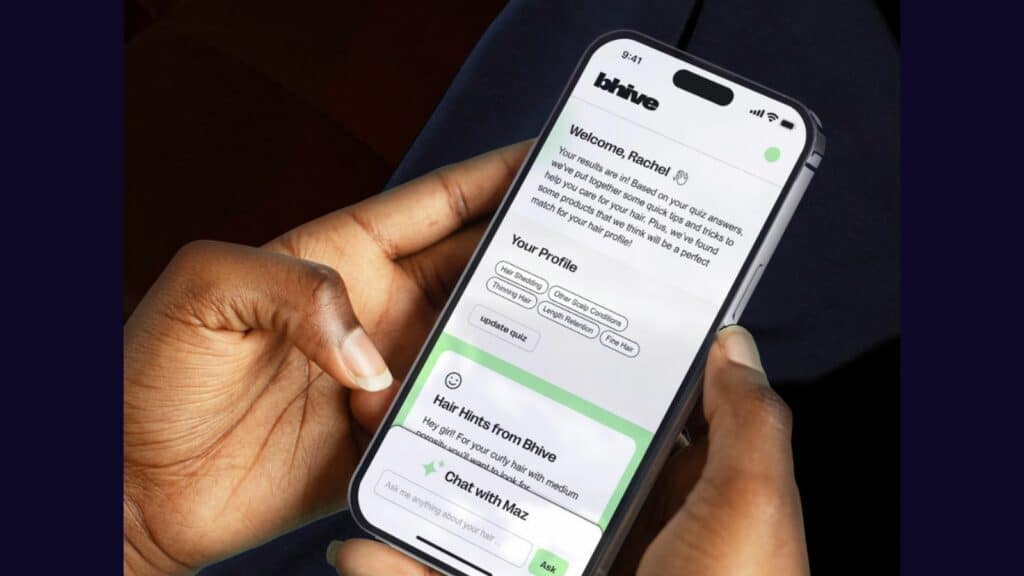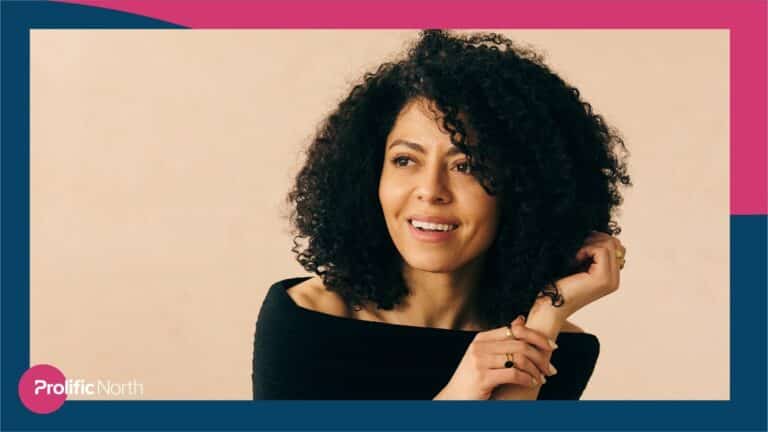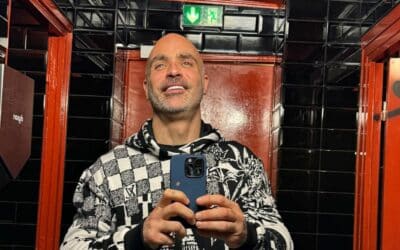When Marina Fallahi was swiping through dating apps, she unexpectedly stumbled on an idea to tackle not just her love life, but an endless search for the right haircare products.
“When the dating apps first came out, I was amazed at the matching technology and I thought: ‘Why can’t I be matched with products that are right for me, like a friend making a recommendation?’”
That idea would eventually lead her to launching Bhive London, an AI-powered ‘dating app’ for your hair designed to take the guesswork out of choosing the right haircare products.
READ MORE: Inside the Northern tech scene and the investors betting big outside London
“I feel like my whole life has been gearing me up to this moment,” says Fallahi.
From learning the ropes of the hair and beauty industry at small businesses to working in senior brand roles for global giants like Schwarzkopf and Revlon, she has spent years fully immersed in the sector.
“66 percent of women still struggle to find the right products for their hair,” she says. “I wanted to fix that.”
But she was struggling to juggle the idea alongside her job in the beauty industry: “Naively, I thought I could work on it alongside my corporate job. I made absolutely no progress.”
Then, in 2023, redundancy gave her the push she needed: “I thought: ‘This is my chance now,’ so I ran with it.”

Working with a developer and a co-founder, she built a proof of concept for the app. “Bhive matches consumers to the right products, but I want this to be a haircare destination – it’s much more than products,” she explains. “Currently, no brands hold information on specific hair types to that level, in terms of the specific products for specific hair types.”
She claims some consumers buy products purely based on marketing claims, and has seen firsthand why it is “so difficult” for women to find the right hair care products.
“One in three women have admitted to calling in sick because of a bad hair day – and 70% of women say that they would feel less confident in the job interview if they felt their hair wasn’t looking its best.”
It’s a stark reminder that what she’s developing isn’t just about hair: “Hair can really impact mood. When I explain the concept to women, I’ve noticed their faces light up but men ask: ‘What happens when you match someone to the perfect product? They won’t need your app anymore?’”
Her answer is simple: If that was the case, there would be a “very tiny” hair industry if consumers were reliant on just one hair product for the rest of their lives.
READ MORE: Inside the funding and scaling struggles facing a number of female tech founders in the North
“Women know that. Anyone can have a bad hair day. Our hair is evolving all the time. Even if a new product comes out on the market, they might want to try that. It’s new. Innovation could be better than what they’re already using. We are like magpies, if it’s something new and shiny, we want to try it out!”
“Every woman has a hair story to tell, a hair drama, or an embarrassing hair moment.”
Building Bhive as a first-time founder
Now splitting her time between London and Manchester, Fallani has found the biggest challenge as a first-time founder is access to capital and finding her way into the right rooms, with the right people.
“I spent a lot of time at early-stage events. There’s so many events geared towards women who have an idea but they might not quite know what it is, and there’s lots of mentorship and guidance and general business support available.
“But those meetings where that are going to directly link you to a source of capital are much harder to get to.”
READ MORE: ‘Why I’m moving to Manchester to scale my AI business’
So far, she’s bootstrapped the business, boosted by the help of a small friends and family raise, and is now on the lookout for angel investors.
“If I had a wider network, especially in terms of investors, I would’ve started earlier,” she admits. “I’ve learnt you should be connecting from the get-go, even if they ghost you!”
That lack of connection has been complicated by geography, too. “London investors don’t care where you’re based. But in Manchester, they really want you to have a 100% Northern presence.”
Despite the initial challenges, Fallani has seen traction with the Bhive app despite being at the proof of concept stage.
So, how does it work? Although she has plenty of plans in the pipeline for the platform’s upcoming features, for now it’s pretty simple. Users complete a questionnaire on their hair profile and they are then automatically matched to the ‘right’ products they should be using.

An AI-powered chatbot is also on hand to answer any questions around the ingredients that should be avoided for certain hair-profiles down to styling tips.
Over 600 people are on Bhive’s waitlist, and she’s already onboarded 240 users during a growth trial. She’s also secured 13 major brands and retailers who are ready to partner with the platform once the full product is launched, to offer those data insights.
“It took me months to secure those meetings with these key people and I thought that would put me in a great position this year to go out for investment. But now it’s about revenue. So it feels like they [investors] keep moving the goal posts.”
READ MORE: ‘We still get overlooked’: The reality of scaling a tech business in the North
Once she has the backing to further develop Bhive, her eyes are firmly on global expansion.
“During my research, I was shocked by the scale of feedback from multiple countries beyond the UK, even in the likes of the US and Europe. It shows that the problem is global, and it’s much bigger than I realised.”
Her five-year roadmap includes a UK launch, European expansion by year three, and US rollout by year four. And unlike other influencer-led platforms, she’s adamant Bhive will remain brand-agnostic.
“There’s so much pressure now around authenticity in reviews. People are given incentives to write positive reviews towards a product, whereas my ambition with this is for it to remain completely brand agnostic.”













